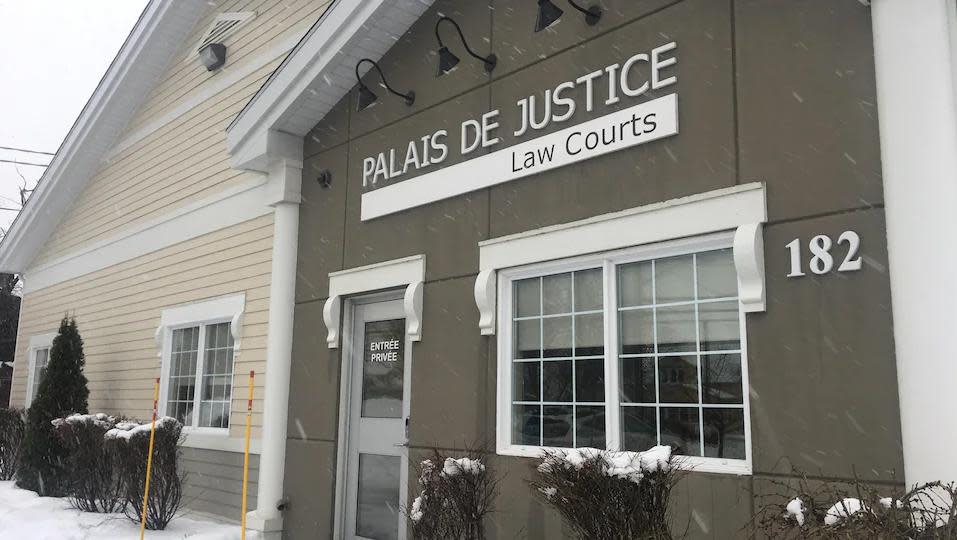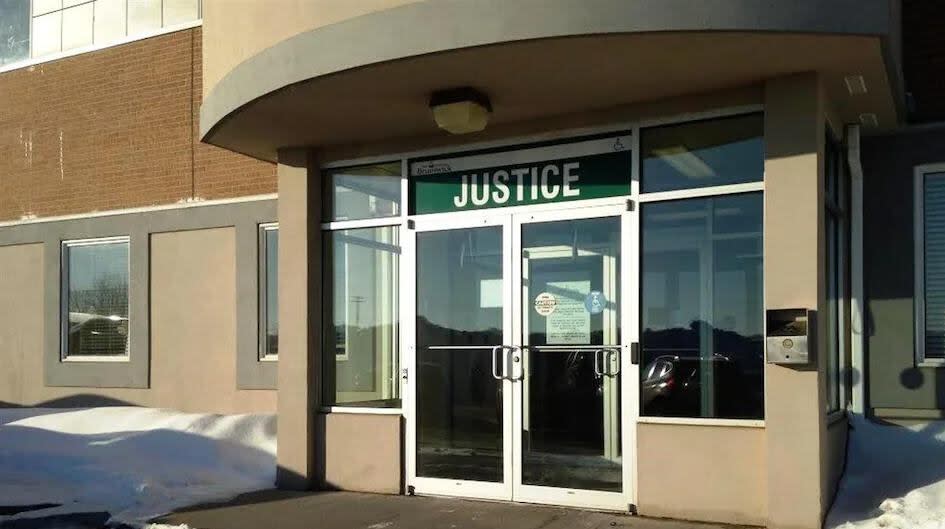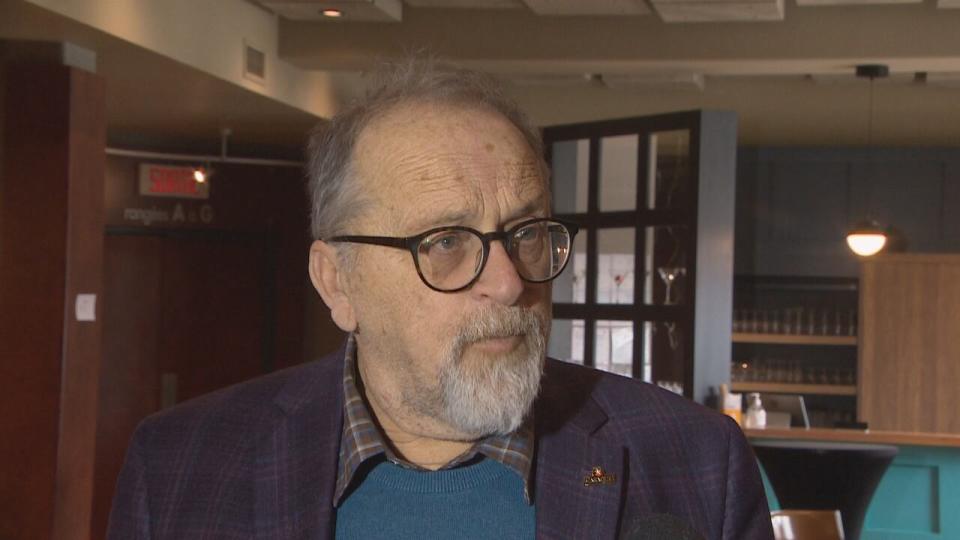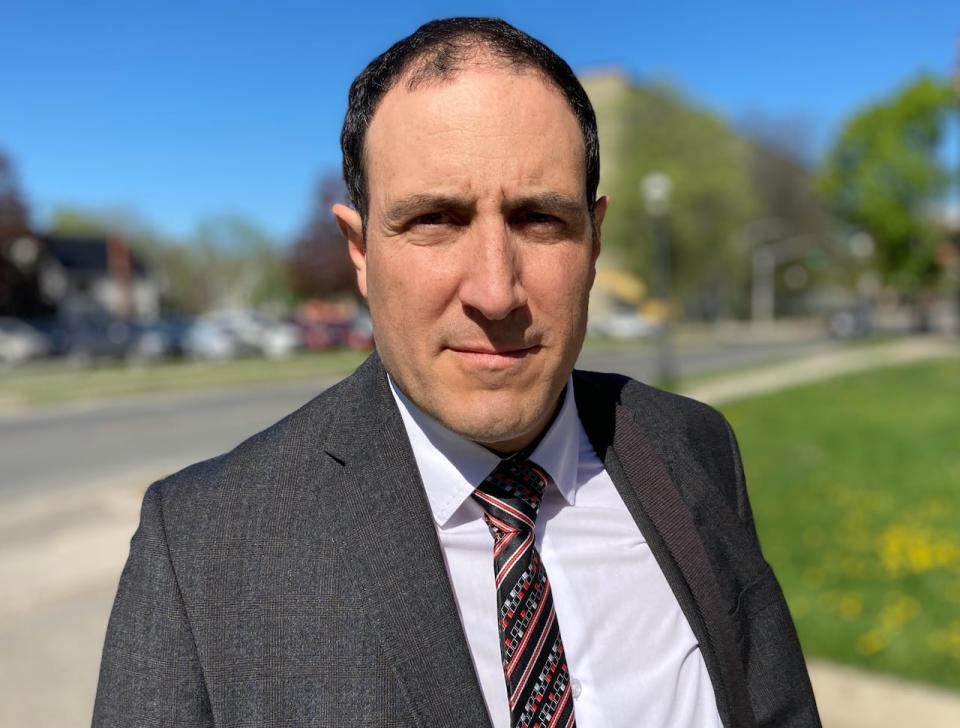Judge cancels province's closure of Caraquet, Tracadie courthouses

The New Brunswick government has been ordered to reconsider the closure of two courthouses in the Acadian Peninsula after a judge concluded that minority-language concerns were ignored.
The provincial court facilities in Caraquet closed at the end of 2021 and Tracadie was reduced to a satellite operation in 2022, with all cases transferred to Bathurst.
The government argued that the number of cases being heard was declining and it was a more efficient use of resources to centralize court services in Bathurst.
But Justice Christa Bourque of the Court of King's Bench writes in a 48-page decision released March 28 that the government ignored the linguistic impact on the majority francophone area.

Crown prosecutors continue to work out of the Tracadie offices but all court matters are heard in Bathurst. (Serge Bouchard/Radio-Canada )
Her ruling cancels the two closures and orders the government to revisit the decision in light of the constitutional and linguistic issues she raises.
"I am persuaded that there is a positive connection between the closure of a courthouse and the protection, preservation and development of a minority language community," Bourque wrote.
"A courthouse is a symbol of justice and of the primacy of law at the heart of a community, embodying the principles of equity, responsibility and access to justice for all members of society.
"It represents a physical manifestation of legal authority and a crossroads for resolving legal issues and respecting the rights and responsibilities of citizens."

Caraquet Mayor Bernard Thériault, part of a group of mayors who took the case to court, says he's pleased with the decision. (Mario Landry/Radio-Canada)
A spokesperson for Justice Minister Ted Flemming did not say whether the province will appeal the ruling.
"The Department of Justice and Public Safety acknowledges the court's decision and respects the judicial process," Allan Dearing said in an email.
"The department will take the necessary time to review the decision."
Caraquet Mayor Bernard Thériault, part of the Acadian Peninsula Forum of Mayors who took the case to court, said he was pleased.
"We're very happy with that court judgment," he said. "This is consistent with what we thought should happen."
The mayors have have not taken a position on whether one or two courthouses should be reopened, only that court services in some form should be restored.
'Undeniable negative impact, says mayor
While the Caraquet building closed altogether, Crown prosecutors continue to work out of the Tracadie offices. But no judges are based in that building and all court matters are heard in Bathurst.
Bourque says the government failed to consider that the principle of open courts and access to justice ensures confidence in the rule of law, and that the closure would have an "undeniable" negative impact on that and on the language rights of people in the area.
The Bathurst courthouse is 66 kilometres from Caraquet and 71 kilometres from Tracadie, the decision says.
Cases heard in Caraquet dropped from 1,260 in 2012 to 711 in 2020, according to figures provided by the province in 2021. The number in Tracadie dropped from 1,061 to 478.

Tracadie MLA Keith Chiasson says having a courthouse in the area was 'more appropriate' to serve the 50,000 people on the Acadian Peninsula. (Jacques Poitras/CBC News)
The government argued that the centralization in Bathurst had reduced court delays and that no jobs were lost.
Tracadie Liberal MLA Keith Chiasson said court cases may be heard faster but the closures have created other inefficiencies, such as requiring a police officer based in the peninsula to spend half a day travelling to Bathurst and back to appear as a witness.
"It's not just a concern for our citizens but also for police forces who have to travel, social workers," he said.
"It just was more appropriate to serve 50,000 people in the peninsula to have one courthouse here."
Retired law professor Michel Doucet, a language rights expert, said it's possible the government could revisit the decision and still reach the same conclusion about closing the two courthouses.
But Bourque's focus on minority-language rights would make that hard to justify, he said.
"The province would have to demonstrate that that impact does not exist."

 Yahoo News
Yahoo News 
